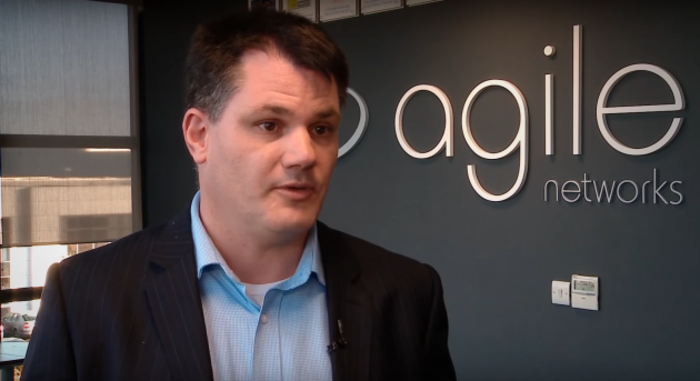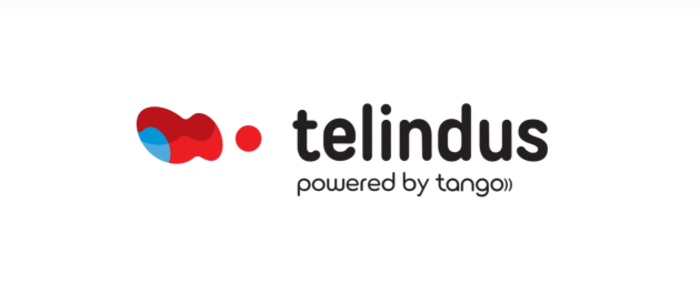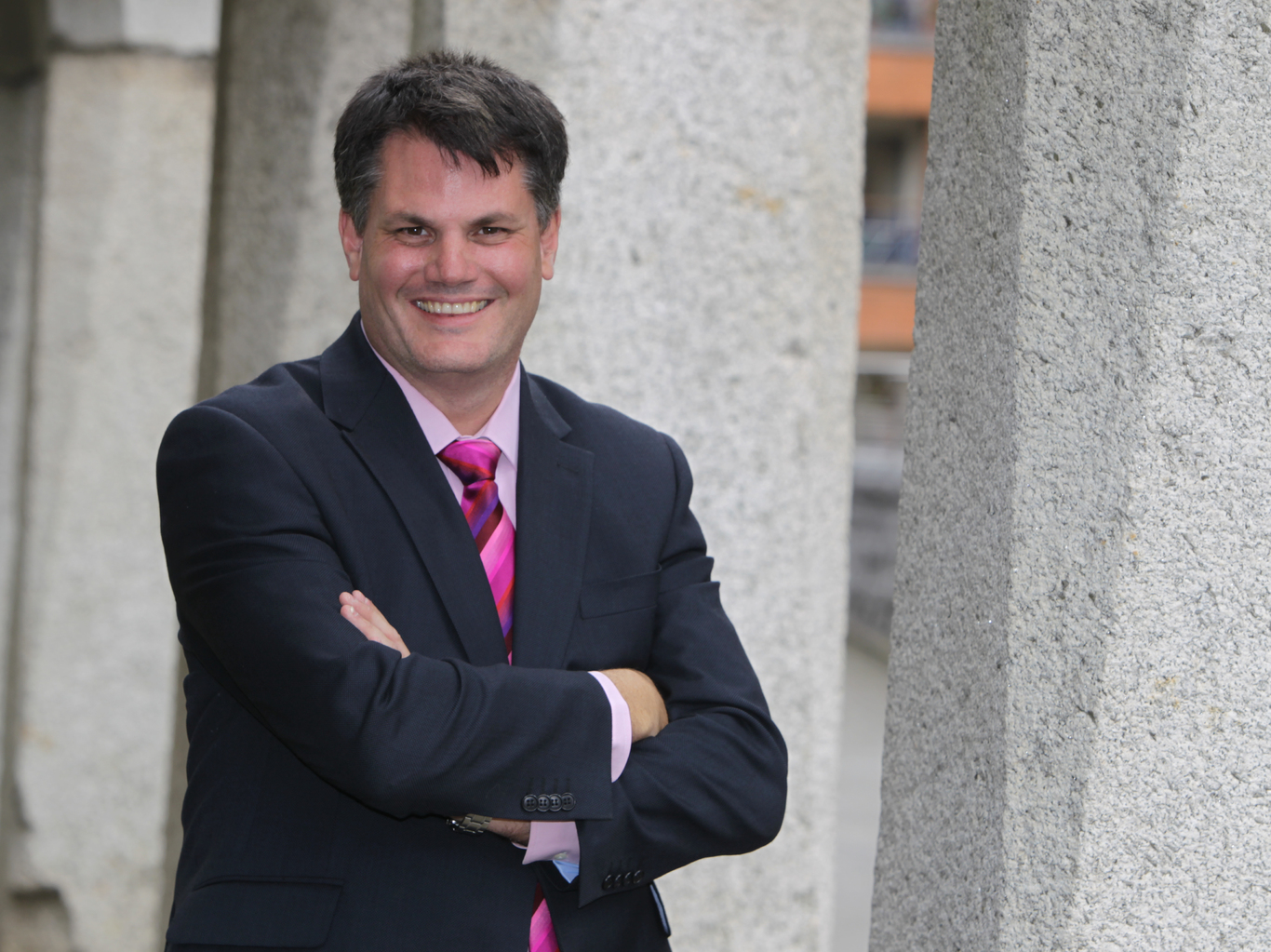'I got 150 "please f**k off" letters while job hunting. I kept them all as motivation'
As part of our How My Business Works series, we profile Dublin IT firm Agile Networks.
SQUIRRELED AWAY IN Darragh Richardson’s home are almost 150 ‘PFO’ letters from companies that rejected him while he was looking for his first serious job.
Richardson was coming to the end of his masters in international marketing when he decided to pull out the phone book and hit up some of Ireland’s biggest and most prestigious companies.
“I wrote to Guinness, Cadbury, Smurfit, all the big companies, and said, ‘Can I please have a job in your marketing division?” he tells Fora.
“I must have applied to 300, 350 firms and I got 147 PFO, or ‘please fuck off’ letters back. I kept them all as motivation.”
By his own admission, Richardson didn’t follow a straightforward path to success. The 47-year-old is the head of Dublin-based IT network company Agile Networks, which recently merged with its larger rival, PlanNet21.
The Dubliner has held positions in three companies, two of which have made him redundant.
The third, a Belgian firm called Telindus, backed him to set up their Irish arm, but then they too almost pulled the plug, leaving Richardson to lead a management buyout and set up Agile.
“My CV is a tale of failure,” he half-jokes.
After carefully archiving his 147 PFO letters, Richardson first went into lecturing at DCU, where he had studied an undergrad in business, before joining South African ICT firm Datatec when he decided he needed to move outside the world of academia.
First redundancy
Richardson became a marketing manager at a time when the company was consolidating five similar positions across different areas into one.
“I got my head down and worked, and they kept me on. I learned that you have to add value to what you’re doing,” he says.
“Either you’re making money or you’re saving it, if you’re not doing one of those two things you’ll fall foul of someone sooner or later.”
 Agile Networks MD Darragh Richardson
Agile Networks MD Darragh Richardson
However, it turned out to be a stay of execution as Richardson was out of the job about three years after he started.
“The company had backed some tech that hadn’t worked out, and in the UK, where 240 people were based, me and 79 of my closest friends were made redundant on the same day,” he says.
“It was tough; I couldn’t understand, because I could see some of the people staying behind and I thought that they didn’t add as much value as me.
“I was fortunate because I was young, about 32, and single, and I had interviewed somewhere else about two weeks before that.”
New start
IT firm 3Com was on the lookout for a marketing manager at the time, and the company hired Richardson to head up its UK division. However, the relationship didn’t last three years either.
“3Com had been the leader in their field, but they were losing market share to Cisco,” he says.
“They had dropped some products and broken trust with their customers. I was hired with other partner staff to try to fix it. We tried for two and a half years to fix it and we couldn’t.”
The redundancy was complicated by the fact that Richardson was now 36 and recently married. He took more time to look around after losing his job this time and eventually joined Belgian ICT firm Telindus, where he was asked to set up shop for the company in Ireland.
 Agile started out as part of Telindus
Agile started out as part of Telindus
“I recruited two guys in Belfast and two in Dublin. I remember having a big team meeting on Paddy’s Day 2008 where I said, ‘Don’t worry about that thing in the papers about sub-prime mortgages, that’ll never affect us’.”
After that the recession started to bite, with Richardson saying that the Irish operation “did a magnificent job of losing money left and right”.
Things continued in a similar fashion until the start of 2011, when Telindus decided to restructure its business. While it decided to keep its operations in the North, the company wanted to relocate its workers in the Republic.
Richardson weighed up his options and decided to lead a management buyout along with the other five workers in the Dublin office.
“By this stage I was 41, I was married with two kids and I had loads of responsibilities. It probably wouldn’t have been the textbook time to set up your first business,” he says.
“Ultimately, it was an emotional argument. I had a chat with my dad and my oldest school friend, and both said that they didn’t want to look into my eyes and see me wondering ‘what if?’”
Richardson decided to focus the business on designing, building and supporting the networks used to access the internet.
Management buyout
Companies and organisations such as hospitals and government departments tend to upgrade their networks every few years so that their IT systems can perform better.
Agile will assess the requirements that an organisation has and then install and maintain those networks.
Within its first year of operations, Agile won a major contract to install broadband infrastructure in the hundreds of secondary schools across Ireland.
Richardson says this gave the business credibility and helped it secure contracts with bigger companies.
Since the management buyout in 2011, Agile has grown from a company with half a dozen staff and a turnover of just under €1 million to one with 21 employees, revenues of more than €9 million and profits in excess of €1 million.
Many of Agile’s customers are ‘service providers’, such as Three mobile and the Imagine group.
Schools, colleges and universities have been big business for the company since the buyout, as have hospitals. In the private sector, its customers range from pharma giant Abbvie to Aviva Stadium.
 Aviva Stadium is an Agile customer
Aviva Stadium is an Agile customer
Almost all of Agile’s customers are in the Republic, although a handful are dotted across a few other international markets, most notably the UK.
Rivals
Agile’s most natural competitors are large telcos like Eir and BT, although Richardson says that the company differentiates itself with the fact that all of its service staff are high-level engineers.
“Most companies have a small number of high-level engineers who you meet at the start of the project and never see again. At the bottom are the least qualified people who man the support desk and are the ones (customers normally deal with),” he says.
“We wanted vocal engineers. They design and implement networks and they take turns, one week out of every four, manning the help desk so that customers get through to someone qualified every time.”
The firm also makes an effort to deploy specialist equipment not used by many of its Irish rivals for network installations.
“We pick challenger brands and we become known for that. For example, we are well-known as the only elite partner with (equipment manufacturer) Juniper in Ireland.”
PlanNet21 was a rival for Agile and, while the two have merged, Richardson says that they will continue to battle it out for certain customers.
 Agile competes with the likes of Eir
Agile competes with the likes of Eir
Mentoring
The two companies have a combined turnover of about €45 million, something that Richardson says that they want to double in the next three years.
“Part of that will be growing the business organically, and then from targeting multinationals’ business, and possibly cross-selling inside the new company,” he says.
The Dubliner, along with the other original Agile shareholders, sold his stake in his company as part of the merger.
While he says he plans to stay on to make sure that the two companies merge smoothly, he is mulling some options for the future and fancies the idea of assuming a mentoring role for startups.
“We’re working on a programme to make sure that we get things integrated,” he says.
“I’ve worked with three organisations that made a hash of M&A, so we want to prove that we can do it without losing what made us an attractive acquisition in the first place.
“Beyond that, I don’t know; I’ve been leading this company for almost 10 years, and 10 years is normally a good time to start looking around. I know (the IT industry) better than to make long-term plans.
He adds: “I’m a mentor with Startup Dublin for a few Dragon’s Den-style courses where people pitch to you, and I like getting involved.
“I may look at making investments in other things that aren’t connected to Agile. I do like the idea of supporting startups and hopefully helping them to follow a similar path to the one Agile went down.”
This article is part of our weekly series examining the nuts and bolts of businesses. If you would like to see your company featured please email news@fora.ie.






